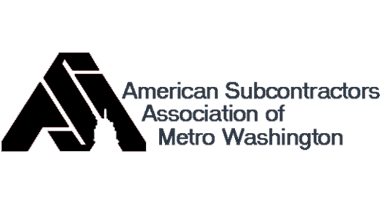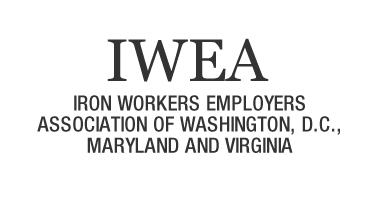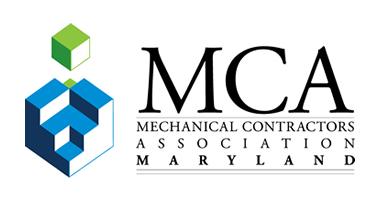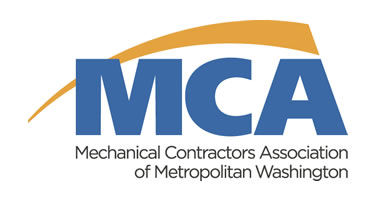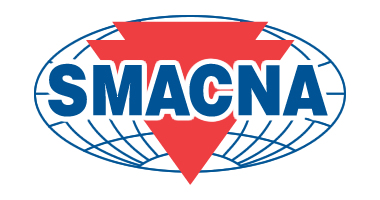May 14, 2020 Right of Offset Document
A scorecard for the subcontractor community
By: Lauren P. McLaughlin, Esq. and Raziye Andican, Esq.
For subcontractors, there are few instances more frustrating than receiving an unexpected and previously-undisclosed list of backcharges that are being deducted from the final payment due and owing to your company. Even more distressing is the scenario when a general contractor delays payment rightfully owed to a subcontractor by asserting backcharges allegedly owed on a separate project.
All subcontracts allow a general contractor to deduct backcharges against a subcontractor for its alleged defective work on a project. Some subcontracts go further and expressly allow the general contractor to offset payment due under one contract as purported compensation for a claim that it has asserted against the same subcontractor on another contract. Here is a standard setoff clause that should serve as an example of a “trap for the unwary”:
Contractor may withhold amounts otherwise due under this Subcontract or any other agreement between the parties to cover Contractor’s reasonable estimate of any costs or liability Contractor has incurred or may incur for which Subcontractor may be responsible under this Subcontract or any other agreement between the parties.
The bolded and underlined text is never so conspicuous in the contract, so subcontractors need to be aware of and negotiate this kind of clause out of their agreement, or at least negotiate and strike the last part of the clause.
The American Subcontractors Association of Metro Washington has actively and successfully sought to pass legislation in the surrounding DMV region to render these kinds of provisions void and unenforceable, even if they do wind up in your agreements. Below is a brief synopsis of how the right of offset has been limited in Virginia, Maryland, and DC and the applicability of such terms depending on whether the project is public or private.
Virginia
- Private Projects – OFFSET NOT ALLOWED
For decades, Virginia courts have allowed general contractors the right to offset sums owed subcontractors on other projects. That right of offset will now change for private contracts, because effective July 1, 2020, any contract provision allowing a party to withhold funds due on one contract or subcontract for alleged claims or damages due on another contract or subcontract is void as against public policy. This amendment will be made to Virginia’s mechanics’ lien statute § 43-13 titled “Funds paid to general contractor or subcontractor must be used to pay persons performing labor or material.”[1]
Why is this important for my company? Subcontractors should take notice of this new law in Virginia for several reasons: (1) so that those in your company responsible for negotiating contracts with general contractor clients after July 1, 2020 can make reference to the new law to effectively strike such clauses going forward; (2) to the extent a general contractor attempts to offset monies owed on one project with another, a subcontractor can refute the offset with the new statute; and (3) to the extent a subcontractor has offset language in its own downstream sub-sub-contracts, this provision (and practice) is no longer enforceable.
This new statute is a major change in Virginia where “contract is king” and historically, Virginia courts are loathe to read out of a contract something the parties expressly bargained for.[2]
- Public Projects in Virginia – OFFSET ALLOWED*
For those working on state projects, the next question is whether this new anti-offset statute applies on projects for the Commonwealth. This new statute is silent on whether it applies to public contracts in Virginia, but the more compelling reason offset is likely still permitted on state jobs is because the new law was enacted in the mechanic’s lien code (applicable only on private jobs). In addition, there is no corresponding anti-offset statute in the Virginia Public Procurement Act or the Virginia Prompt Payment Act.
However, here’s the reason for the asterisk. Virginia has another relatively new statute that has yet been untested, which could arguably be used to challenge an offset clause as null and void. Section 11-4.1:1 of the Virginia Code states that any provision that waives or diminishes a subcontractor’s right to claim “demonstrated costs” executed before the subcontractor performs work is null and void. Arguably, an offset clause “diminishes” a subcontractor’s right to claim demonstrated costs. Again, this is a relatively newer statute that no one has litigated. Additionally, proposed new legislation in Virginia regarding pay-if-paid “condition precedent” language may also serve as a means to argue the invalidity of the right of offset on public projects in Virginia.
For now, absent any other legislative actions, the right of offset on public projects in Virginia appears unaffected by the new law. However, the tide may be turning in that two other statutes pending and enacted may limit the general contractor’s right to offset in Virginia.
Maryland
Private and Public Projects – OFFSET NOT ALLOWED
In Maryland, a general contractor does not have the right to setoff because of Maryland’s construction trust fund statute that applies to both public and private jobs, Md. Code Ann., Real Prop. §§ 9-201, et seq. This statute requires that any funds paid under a contract by an owner to a contractor or an owner or contractor to a subcontractor shall be held in trust for those subcontractors who did the work or furnished the materials. It essentially means you cannot have a “global accounting” with one subcontractor on different projects. Again, if a subcontractor is working on multiple projects for the state of Maryland, the general contractor cannot offset payments owed on one job for another. The same analysis applies on private projects, but does not apply to federal projects. See id. at § 9-204. If a contractor receives trust fund monies paid from a particular project, the contractor is obliged to apply the funds to invoices for labor or materials supplied for that particular project. See Insurance Co. of N. Am. v. Genstar Prods. Co., 338 Md. 161 (1995).
District of Columbia – OFFSET ALLOWED
Unlike Virginia and Maryland, the District of Columbia does not have any specific statute in place regarding offset on construction projects. The absence of any statute voiding offset provisions means that the right of a general contractor to offset is arguably permissible and allowable in D.C., if provided for in the contract. This means subcontractors need to exercise heightened care in reviewing subcontracts to strike clauses allowing offset. ASAMW will actively seek to lobby the District to enact similar legislation, but if any party has an offset provision in a contract, they should expect that it will be enforced in the District of Columbia for both private and state projects.
Federal Projects – OFFSET ALLOWED
On federal projects, the government’s right to offset is expansive and set forth in the Federal Acquisition Regulations. In addition, the government has a federal common law right of setoff. However, the right to setoff may be limited in the context of when a surety steps in to complete the bonded obligations of its principal – general contractor or subcontractor. As explained below, two cases from the Eastern District of Virginia limited the right of setoff on federal jobs when completion sureties were involved.
For instance, in United States ex rel. Acoustical Concepts, Inc. v. Travelers Casualty & Surety Company of America, 635 F.Supp.2d 434 (E.D. Va. 2009), the Eastern District of Virginia held that a subcontractor’s Miller Act rights were superior to the surety’s right to assert a contractual right to setoff arising out of a non-federal project. Subcontractors should take note of this ruling that despite language in the general contractor’s contract, the Court disallowed setoff where the subcontractor had a valid payment bond claim under the Miller Act. The takeaway from this case is that a surety is not entitled to offset amounts due on a bonded project with a non-bonded project. The Court did not say whether offset may be allowed among multiple bonded jobs.
Similarly, in The Hanover Insurance Company v. Blueridge General, Inc., No. 2:12CV698, 2013 WL 4590568 (E.D. Va. Aug. 28, 2013), the court found that a general contractor who had multiple projects with a subcontractor could not assert setoff against the subcontractor’s completion surety (after the subcontractor’s default) with claims it had against the subcontractor on other private projects. In other words, setoff is not likely permissible against a subcontractor’s performance bond surety. Although they stand in the shoes of their principal (defaulting subcontractor) the surety’s rights and duties only extend to their bonded obligations and not for alleged defaults on unbonded projects.[3]
[1] This section of Virginia’s mechanics’ lien statute also clarifies that funds paid to a general contractor or subcontractor must be used to pay persons performing labor or furnishing material on that project. The law does not in any way affect or impair the general contractor’s right to backcharge for failure to properly perform work or furnish materials.
[2] Keep in mind that if a contractor and subcontractor file suit against each other or arbitrate or mediate a number of project disputes in the same forum, both parties are entitled to “offset” against amounts owed in a court proceeding. They cannot offset as a means of “contract accounting” during the project.
[3] The surety’s status as a performing surety subrogated the obligee’s rights to the remaining subcontract balance and the general contractor’s right to setoff failed.

